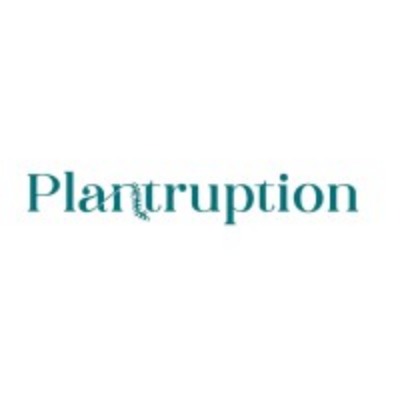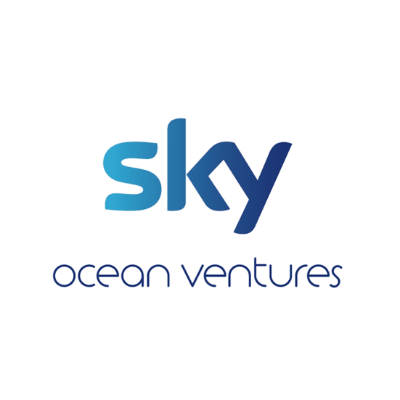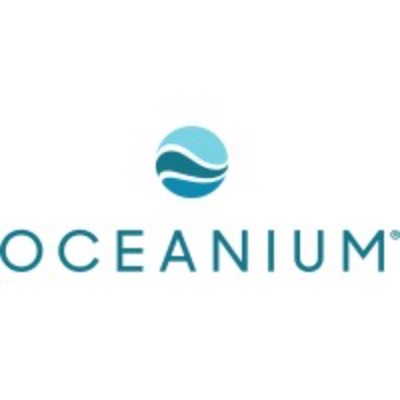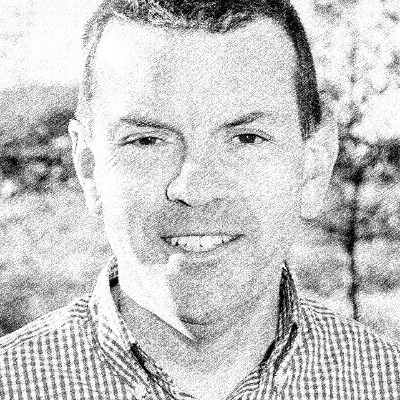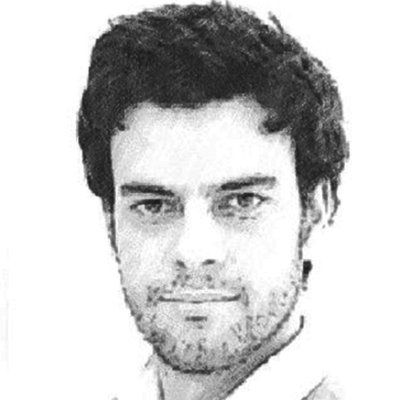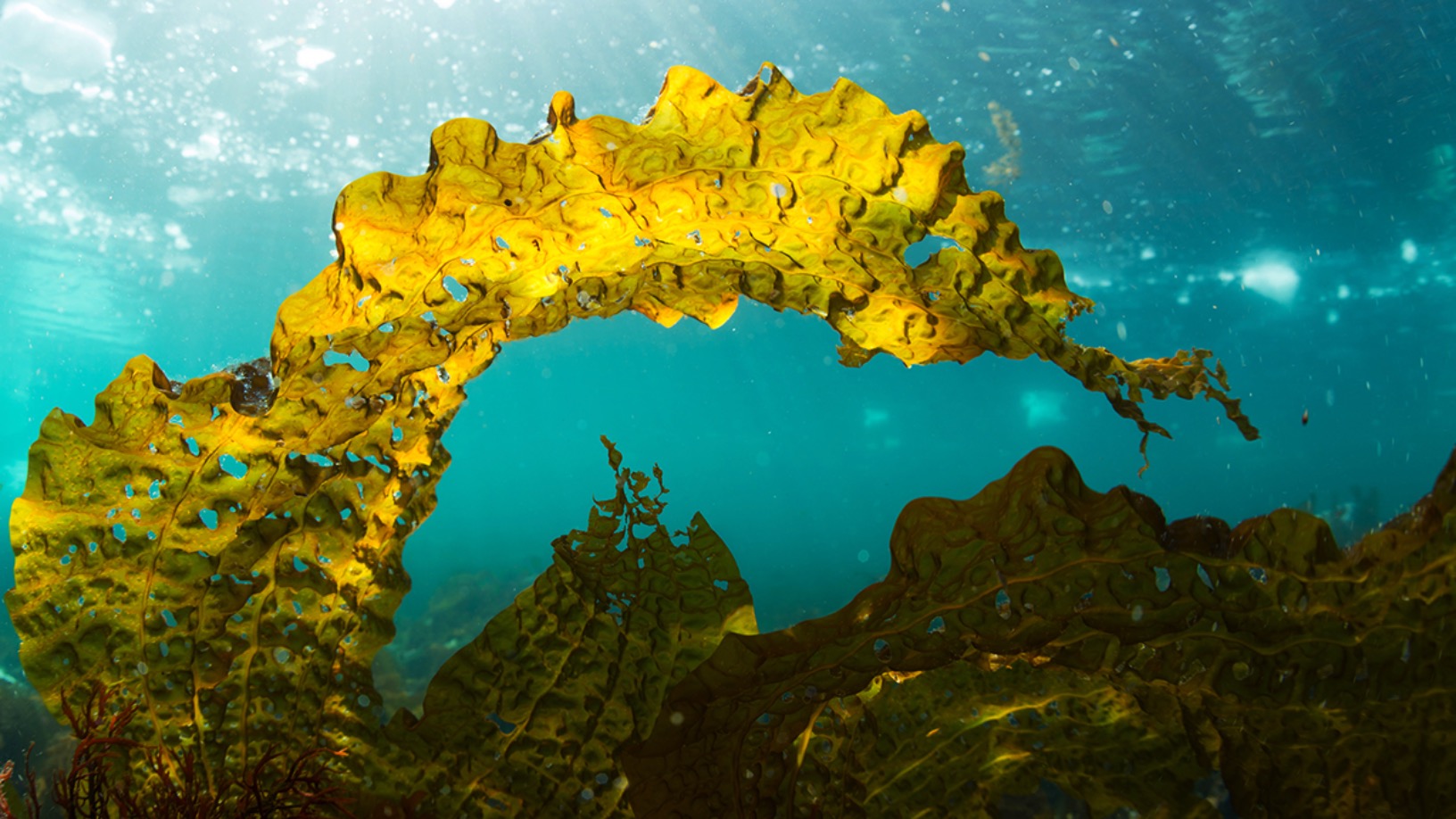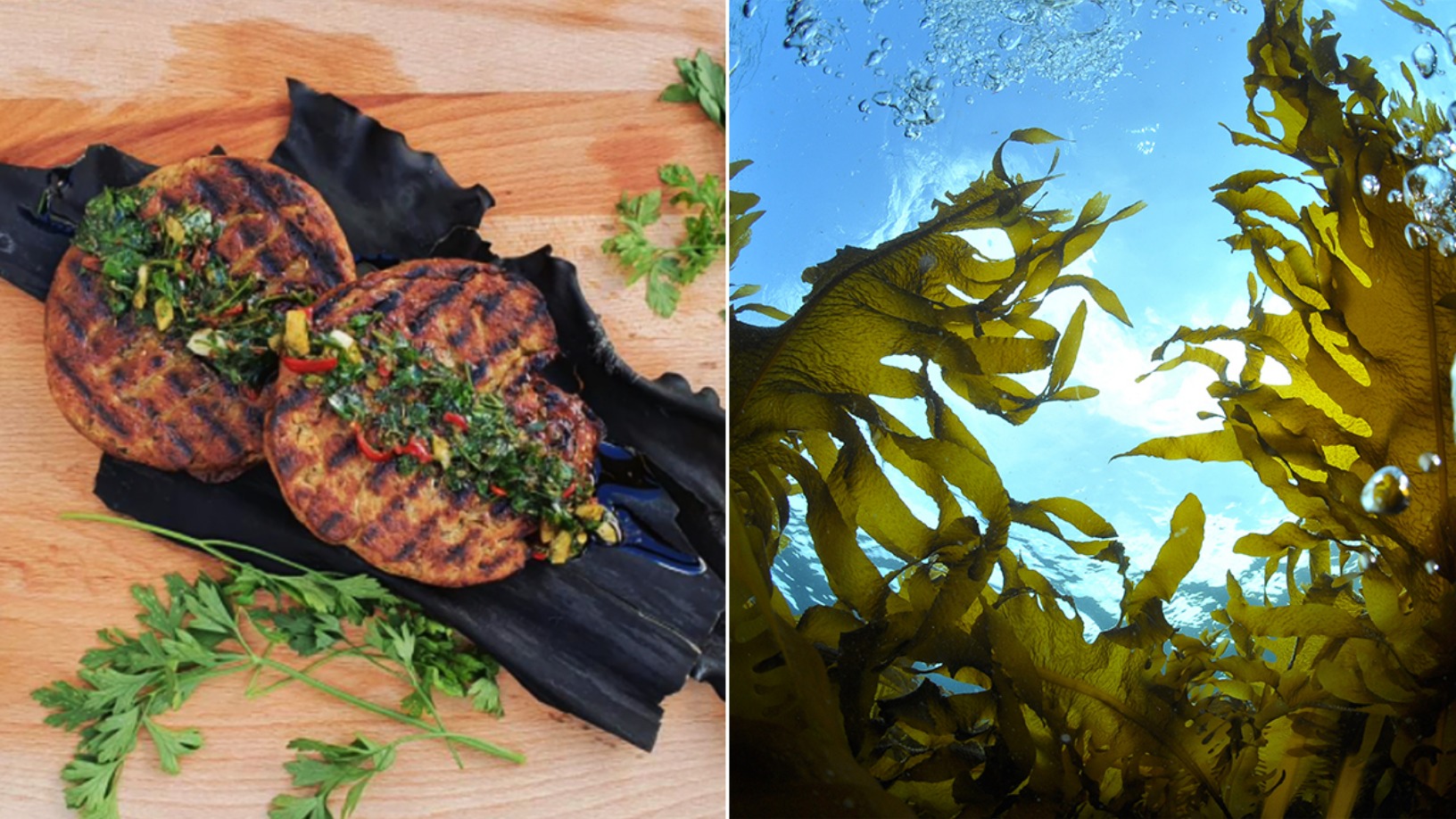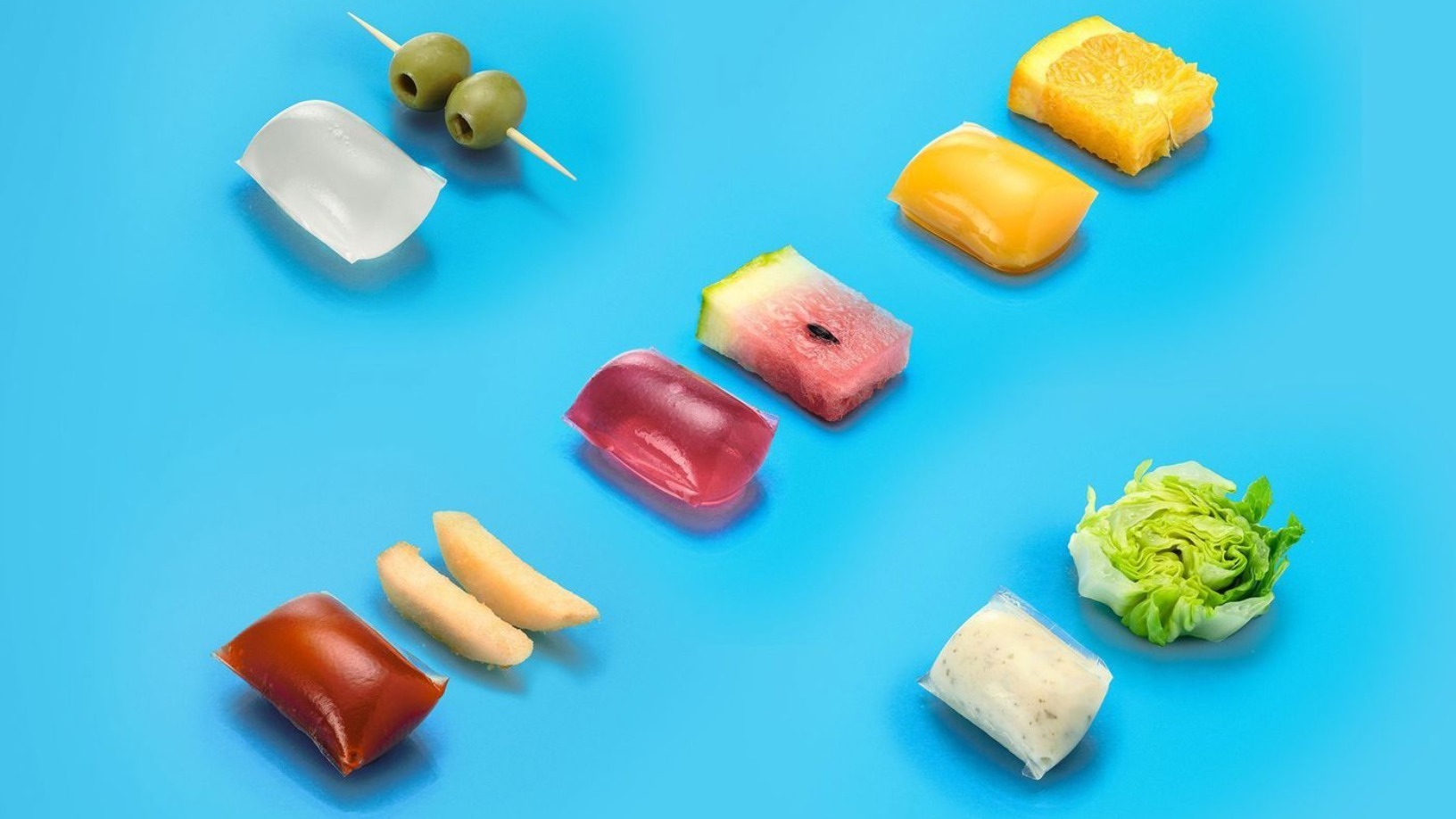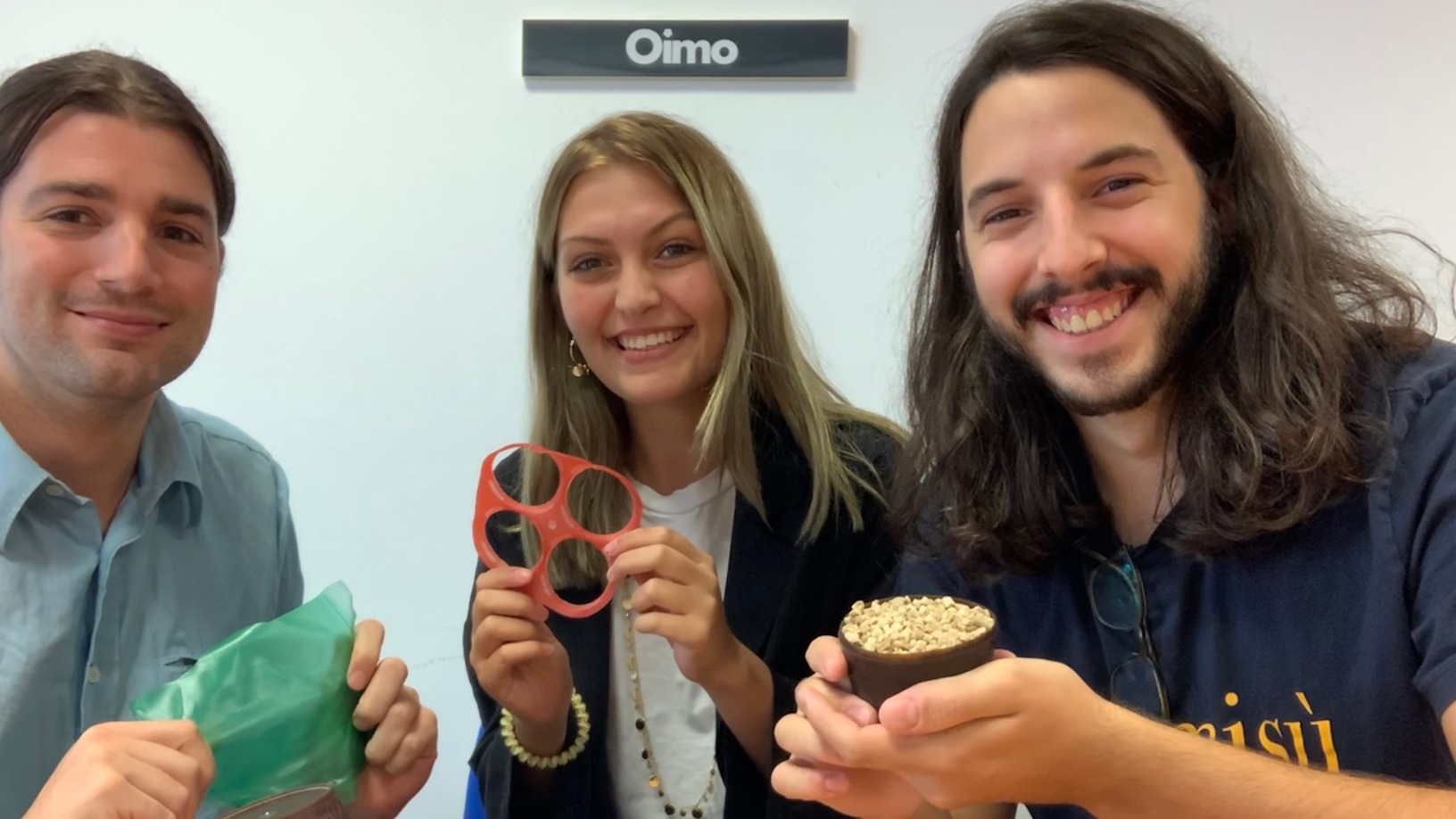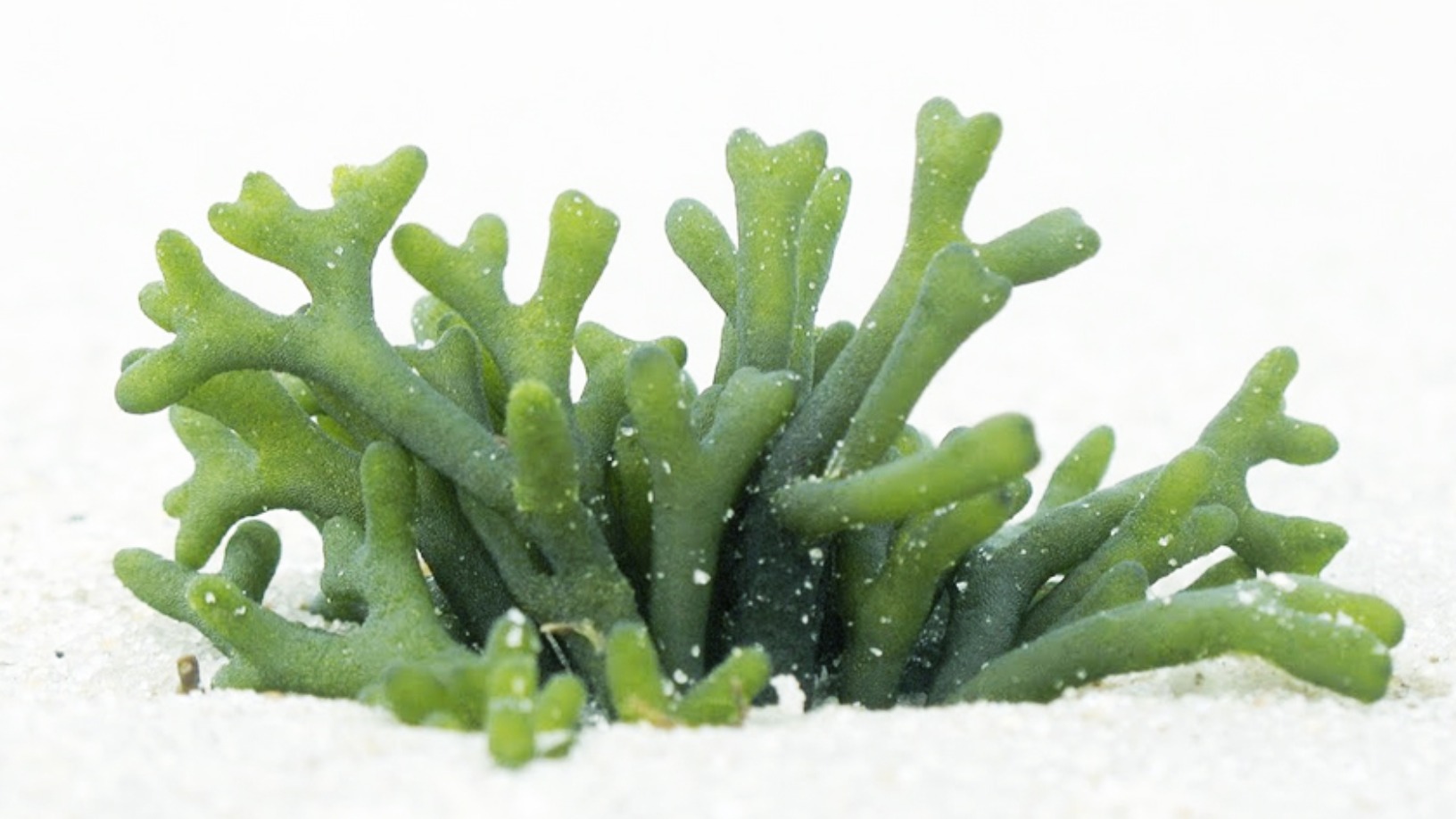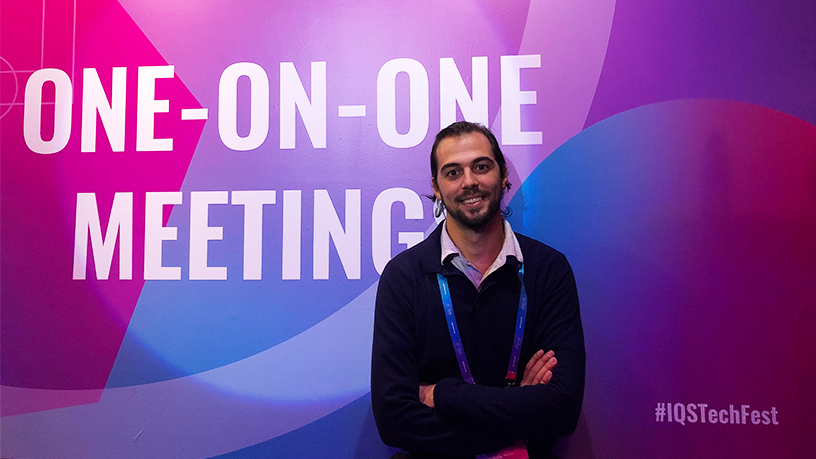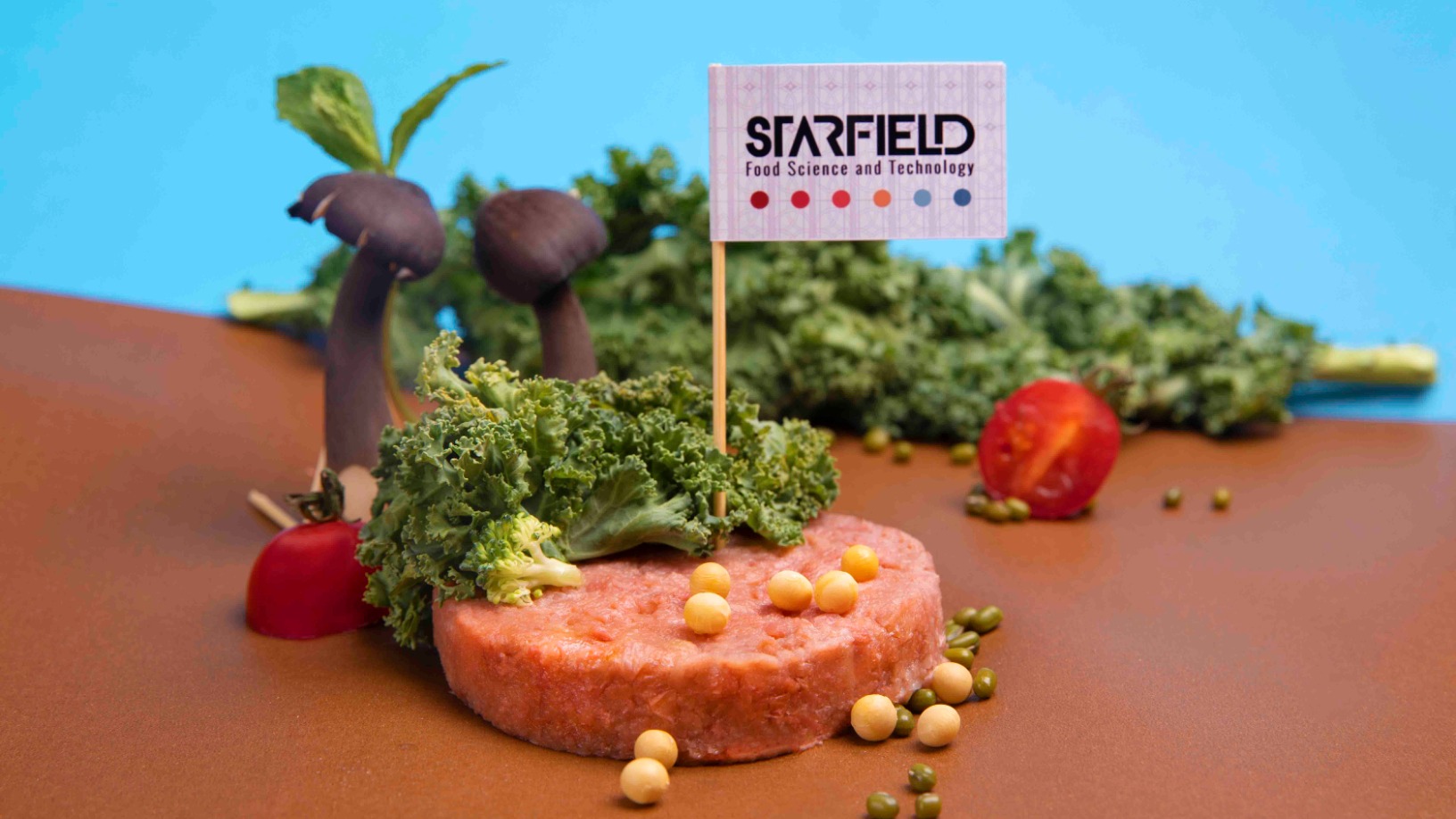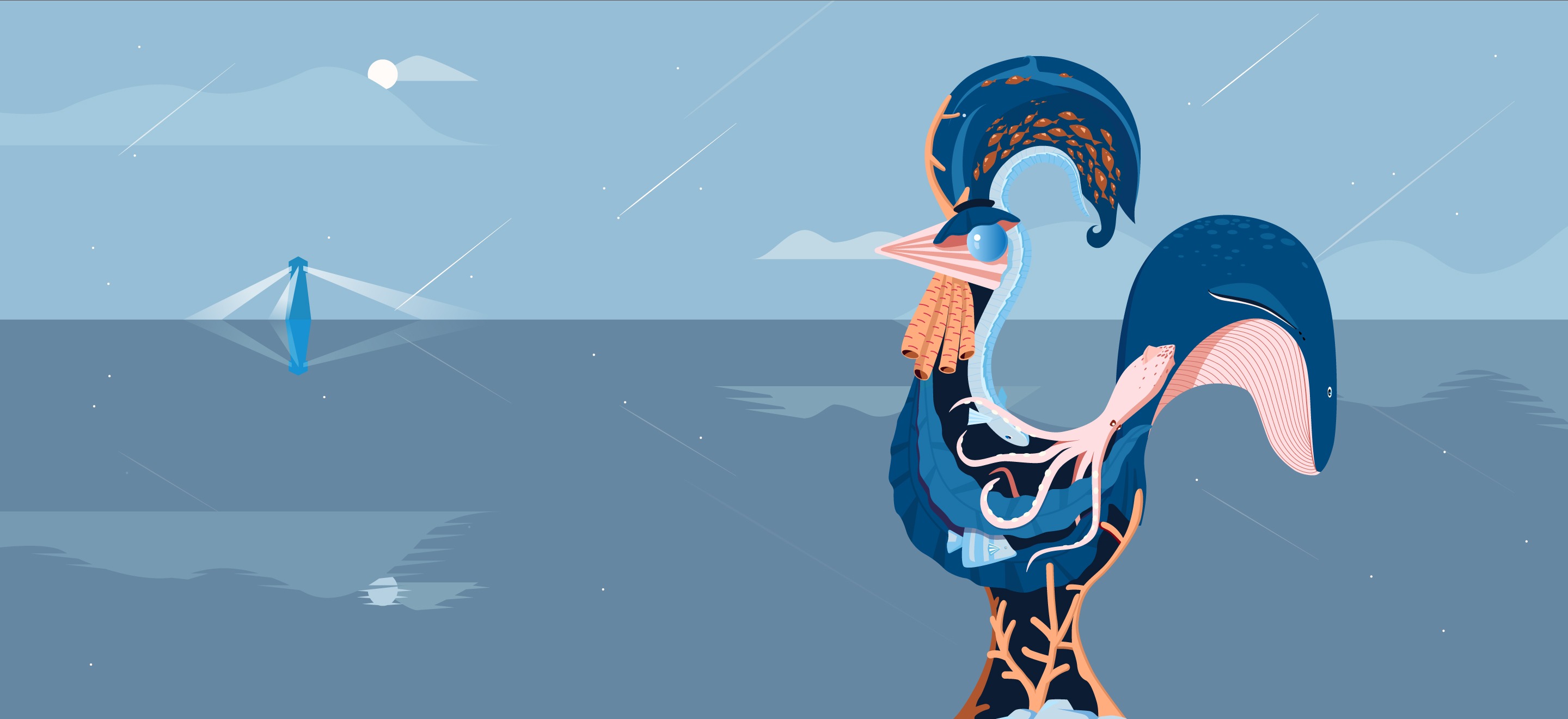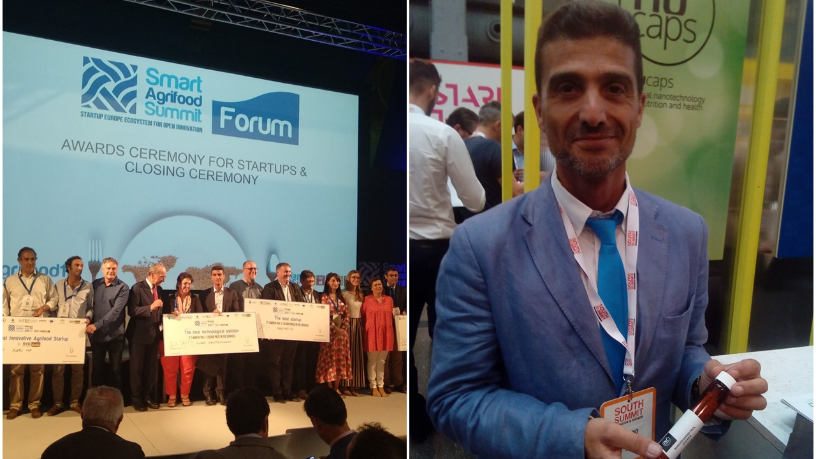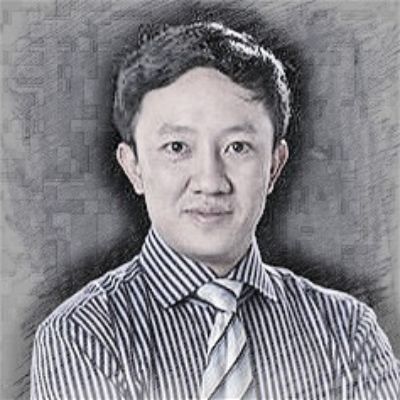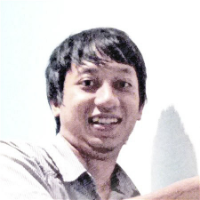Seaweed
DATABASE (10)
ARTICLES (13)
Irish alt-protein foodtech Plantruption produces nutritious fish substitutes without artificial additives, leveraging the health benefits of sustainably sourced local seaweed.
Irish alt-protein foodtech Plantruption produces nutritious fish substitutes without artificial additives, leveraging the health benefits of sustainably sourced local seaweed.
Sky Ocean Ventures is a £25m impact investment fund and part of the Sky Media Group. It was launched in 2018 with the goal of accelerating businesses that can tackle global plastic pollution with innovative ideas and disruptive technologies. The firm has backed 20 startups that have developed solutions that help mitigate plastic disposals in the environment, such as disposable bottles made of paper, reusable delivery boxes, sachets made from seaweed and packaging made from wood chips. Sky Ocean Ventures also partners with, among others, The National Geographic and the Imperial College in London.
Sky Ocean Ventures is a £25m impact investment fund and part of the Sky Media Group. It was launched in 2018 with the goal of accelerating businesses that can tackle global plastic pollution with innovative ideas and disruptive technologies. The firm has backed 20 startups that have developed solutions that help mitigate plastic disposals in the environment, such as disposable bottles made of paper, reusable delivery boxes, sachets made from seaweed and packaging made from wood chips. Sky Ocean Ventures also partners with, among others, The National Geographic and the Imperial College in London.
WWF-backed biotech Oceanium has developed a biorefinery that transforms seaweed into alt-proteins and compostable packaging that will soon be launched commercially.
WWF-backed biotech Oceanium has developed a biorefinery that transforms seaweed into alt-proteins and compostable packaging that will soon be launched commercially.
CEO and founder of Plantruption
Jennifer O'Brien qualified as a financial advisor at University College Dublin in 2010. She started her banking career in 2007 at AIB where she spent six years working with SMEs and investments. In 2013, she joined KBC Bank Ireland as a restructures executive and went on to work as an asset manager at Link Asset Services in 2016. O’Brien also worked in asset management for two years at O’Dwyer Real Estate Management while completing an MBA at Trinity College Dublin. She left the realty company in 2019 to realize her dream to create alt-protein seafood using locally sourced seaweed.
Jennifer O'Brien qualified as a financial advisor at University College Dublin in 2010. She started her banking career in 2007 at AIB where she spent six years working with SMEs and investments. In 2013, she joined KBC Bank Ireland as a restructures executive and went on to work as an asset manager at Link Asset Services in 2016. O’Brien also worked in asset management for two years at O’Dwyer Real Estate Management while completing an MBA at Trinity College Dublin. She left the realty company in 2019 to realize her dream to create alt-protein seafood using locally sourced seaweed.
Oimo’s bioplastic products degrade in water within a month and are compatible with existing manufacturing machinery, allowing rapid replacement of single-use plastics.
Oimo’s bioplastic products degrade in water within a month and are compatible with existing manufacturing machinery, allowing rapid replacement of single-use plastics.
CEO and Co-founder of Oceanium
Karen Scofield Seal is the CEO and co-founder of Oceanium, a Scottish startup developing marine-safe bio packaging and plant-based food and nutrition products from sustainably farmed seaweed. During the 90s she lived in New York working as Senior Manager and Producer for the National Football League, as Production Supervisor and Event director at the US OPEN Tennis, and as Coordinating Producer at ABC News.She later moved to London with her husband, where she worked in Comic Relief and in RED, liaising with Apple, American Express and Converse partnerships. In 2009 she co-founded LUCZA, a luxury e-commerce active since 2014. There, she executed marketing and PR strategies including offline and online initiatives.
Karen Scofield Seal is the CEO and co-founder of Oceanium, a Scottish startup developing marine-safe bio packaging and plant-based food and nutrition products from sustainably farmed seaweed. During the 90s she lived in New York working as Senior Manager and Producer for the National Football League, as Production Supervisor and Event director at the US OPEN Tennis, and as Coordinating Producer at ABC News.She later moved to London with her husband, where she worked in Comic Relief and in RED, liaising with Apple, American Express and Converse partnerships. In 2009 she co-founded LUCZA, a luxury e-commerce active since 2014. There, she executed marketing and PR strategies including offline and online initiatives.
CTO and Co-founder of Oceanium
Charlie Bavington holds a PhD in biochemistry from the University of Edinburgh and has done postdoctoral research at the Scottish Association for Marine Science in natural marine products specializing in glycobiology and carbohydrate chemistry.In 2000, he moved from academic research to industry, joining a marine biotechnology company where he has been responsible for natural product discovery and contract research. His commitment to marine life and natural product development continued with GlycoMar, a company he co-founded in 2005, specializing in the discovery and development of novel functional glycans from microalgae, macroalgae, invertebrates, and plants.Since 2018, he’s CTO and co-founder of Oceanium, a Scottish startup developing marine-safe bio-packaging and plant-based food and nutrition products from sustainably farmed seaweed.
Charlie Bavington holds a PhD in biochemistry from the University of Edinburgh and has done postdoctoral research at the Scottish Association for Marine Science in natural marine products specializing in glycobiology and carbohydrate chemistry.In 2000, he moved from academic research to industry, joining a marine biotechnology company where he has been responsible for natural product discovery and contract research. His commitment to marine life and natural product development continued with GlycoMar, a company he co-founded in 2005, specializing in the discovery and development of novel functional glycans from microalgae, macroalgae, invertebrates, and plants.Since 2018, he’s CTO and co-founder of Oceanium, a Scottish startup developing marine-safe bio-packaging and plant-based food and nutrition products from sustainably farmed seaweed.
Notpla (formerly Skipping Rocks Lab)
Compostable and edible seaweed-based packaging in a flexible product for many uses to replace polluting plastic, winning accolades from WIRED, Fortune and TIME.
Compostable and edible seaweed-based packaging in a flexible product for many uses to replace polluting plastic, winning accolades from WIRED, Fortune and TIME.
Co-CEO and Co-founder of Notpla (formerly Skipping Rocks Lab)
Currently based in London, French national Pierre Yves Paslier completed a master’s in materials science and engineering from INSA in Lyon in 2010. In 2012, he went on to complete a master’s in industrial and product design at the Royal College of Art in London. He also studied innovation design engineering at Imperial College.After graduating in 2014, Paslier and university alumnus Rodrigo García González co-founded Skipping Rocks Lab that was pivoted as Notpla in 2019. Both are co-CEOs of the UK-based startup that develops compostable and edible packaging material made of seaweed and other plants.Before becoming an entrepreneur, Paslier worked as a packaging engineer for L’Oréal from 2010 to 2012. He has been invited to speak at TEDx conferences in Athens and Warwick to share his experience and innovative projects in packaging and product design. In 2020, he became an industrial advisory board member at Imperial College London Dyson School of Design Engineering. In 2019, he also became a fellow of the Royal Academy of Engineering Enterprise Hub.
Currently based in London, French national Pierre Yves Paslier completed a master’s in materials science and engineering from INSA in Lyon in 2010. In 2012, he went on to complete a master’s in industrial and product design at the Royal College of Art in London. He also studied innovation design engineering at Imperial College.After graduating in 2014, Paslier and university alumnus Rodrigo García González co-founded Skipping Rocks Lab that was pivoted as Notpla in 2019. Both are co-CEOs of the UK-based startup that develops compostable and edible packaging material made of seaweed and other plants.Before becoming an entrepreneur, Paslier worked as a packaging engineer for L’Oréal from 2010 to 2012. He has been invited to speak at TEDx conferences in Athens and Warwick to share his experience and innovative projects in packaging and product design. In 2020, he became an industrial advisory board member at Imperial College London Dyson School of Design Engineering. In 2019, he also became a fellow of the Royal Academy of Engineering Enterprise Hub.
Co-CEO and Co-founder of Notpla (formerly Skipping Rocks Lab)
Rodrigo García González graduated in Architecture at the Technical University of Madrid (ETSAM) in 2009 and also completed various PhD courses in advanced architecture at his alma mater.In 2006, the architect student joined an EU Asia-Link sustainable humane habitat program that included stints at the Centre for Environmental Planning and Technology (CEPT) University in India. He also won a SMILE scholarship to study industrial design at Pontificia Universidad Católica in Chile for one year. In 2011, he obtained a scholarship to study industrial design and business at Umeå Institute of Design in Sweden. In 2014, he completed two master’s programs in innovation design engineering run by London’s Imperial College and Royal College of Art.In July 2014, he co-founded Skipping Rocks Lab, that was later pivoted into Notpla, a UK-based startup that develops compostable and edible packaging materials made of seaweed and other plants.Since 2007, he has worked with various institutions in Europe, Latin America and the US including Cornell University, CEPT, Imperial College and Royal College of Art. In 2016, he became a senior lecturer for a degree program in product and furniture design at Kingston University.He has two patents for his work on structural and deployable systems. His designs have also been featured in prestigious art centers like the Cite de l'Architecture of Paris and the Venice Biennale of Architecture.Other projects include the Hop! suitcase that can follow the user by tracking the signal of the user’s mobile phone and Aer, an artificial cloud that can evaporate “drinkable” water from the sea. He also developed Zipizip, an architectural system that enables the construction of several floors of a building in a few hours.
Rodrigo García González graduated in Architecture at the Technical University of Madrid (ETSAM) in 2009 and also completed various PhD courses in advanced architecture at his alma mater.In 2006, the architect student joined an EU Asia-Link sustainable humane habitat program that included stints at the Centre for Environmental Planning and Technology (CEPT) University in India. He also won a SMILE scholarship to study industrial design at Pontificia Universidad Católica in Chile for one year. In 2011, he obtained a scholarship to study industrial design and business at Umeå Institute of Design in Sweden. In 2014, he completed two master’s programs in innovation design engineering run by London’s Imperial College and Royal College of Art.In July 2014, he co-founded Skipping Rocks Lab, that was later pivoted into Notpla, a UK-based startup that develops compostable and edible packaging materials made of seaweed and other plants.Since 2007, he has worked with various institutions in Europe, Latin America and the US including Cornell University, CEPT, Imperial College and Royal College of Art. In 2016, he became a senior lecturer for a degree program in product and furniture design at Kingston University.He has two patents for his work on structural and deployable systems. His designs have also been featured in prestigious art centers like the Cite de l'Architecture of Paris and the Venice Biennale of Architecture.Other projects include the Hop! suitcase that can follow the user by tracking the signal of the user’s mobile phone and Aer, an artificial cloud that can evaporate “drinkable” water from the sea. He also developed Zipizip, an architectural system that enables the construction of several floors of a building in a few hours.
Oceanium: Supporting sustainable seaweed farming
Scottish startup Oceanium has developed a proprietary biorefinery and processing model to create seaweed-based compostable materials, alt-protein ingredients and nutraceuticals for use across industry verticals
Plantruption: Transforming Irish seaweed into sustainable alt-protein seafood
Using abundant local seaweed as highly nutritious, eco-friendly alternatives to fish, the Dublin-based startup is gearing up to tap into new markets in Europe and the US
Want to cut plastic packaging? Notpla's edible seaweed sachets are an option
From its edible whiskey “bubbles” to biodegradable Teflon-free container liners, Notpla seeks to replace single-use plastic and help food companies boost their green credentials
Oimo: Biodegradable marine-based bioplastics for environmentally friendly food packaging
Its pellets already work well in current factory machinery, so Oimo wants to scale when the EU’s ban on single-use plastics kicks in next year
Futuralga: Circular economy model to turn seaweed into biodegradable plastic alternative
A Cádiz-based young startup is winning accolades for its eco-friendly bioplastic made from seaweed washed ashore
Future Food Asia 2021: Regenerative agriculture in Asia
The unique challenges facing regenerative agriculture in Asia require solutions different from those in the West, presenting opportunities for microfinancing and impact investment
Mi Terro turns milk waste into eco-friendly clothing and packaging
With food giants like Danone, Arla and Dole as partners, US-Sino startup Mi Terro plans to extend its technology to plant-based food waste like soy to get plastic and fiber alternatives
IP Buoys: Mooring 4.0 smart buoys to protect marine ecosystems
Save the Posidonia! That’s the call from enterprising sailors who, with their startup IP Buoys, have found a way to protect the seagrass and marine life from the damaging impact of nautical tourism
In a nascent market, one-year-old Starfield has brought its offerings to around 3,000 F&B outlets and generated RMB 10m in revenue
Portugal oceantech II: Single-minded efforts to build an ecosystem of international reference
With dedicated accelerators and investment programs, supported by the EU’s vote of confidence, Portugal appears on track to lead in oceantech
Nucaps Nanotechnology: New encapsulation tech for nutritional and pharmaceutical sectors
Nucaps Nanotechnology is growing through a mix of accelerating market penetration and continuous R&D
Portugal looks to its marine heritage to create an oceantech leader
Portugal is tapping oceantech disruption to create new value out of its blue economy, with strong government push
Do plant-based meat alternatives stand a chance in China, the world's largest meat consumer?
Major food brands and foodtech startups are trying to build their following in a nascent market forecast to grow to nearly $12bn worth by 2023
Sorry, we couldn’t find any matches for“Seaweed”.
